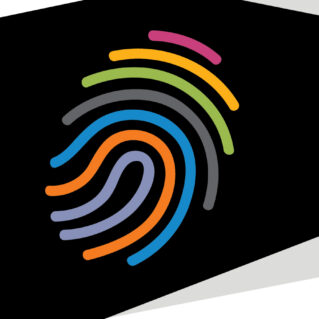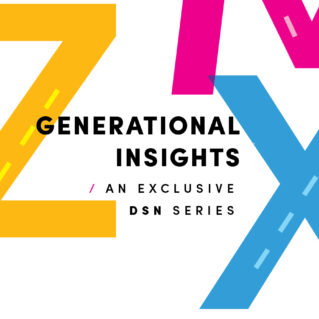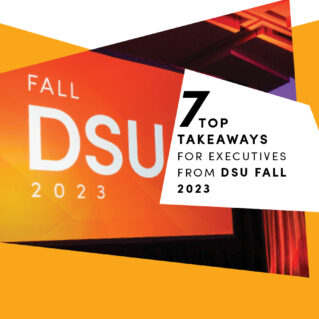The changing face of incentives & rewards.
After clearing a plethora of challenges in the past few years, the direct selling industry emerges asking even more questions about what inspires people to interact with their brands. There’s a retooling underway that bends direct selling business models further and further toward a more customer-centric focus, and direct selling companies find themselves adapting to a new kind of customer. But it’s not just the customer who has changed.
The pandemic spurred an accelerated evolution within direct selling field organizations too. While plenty of traditional industry business builders are selling products and recruiting others to do the same, more companies have now expanded to include affiliate, tiered affiliate and brand partner programs. And the number of social media influencers in the mix could be endless.
The “field” simply isn’t what it used to be. No longer a generalized group of business builders, the direct selling field is more like a collective of wildly diverse motivations, intentions, needs and expectations. Figuring out how to effectively incentivize behavior and reward successful performance is a complicated challenge because this eclectic direct selling field is coming at it from multiple directions all at once.

Effective motivation depends a great deal on a direct selling company’s ability to suss out what people desire most, then adopt incentive and recognition strategies that reflect their differing goals for business builders, affiliates/brand partners and social media influencers, who all want different things. In essence, you need to make it personal. That requires a creative, tiered strategy unlike anything that’s come before.
“I really think as an industry and as a company, we’re still figuring this out. It’s new. We’re trying new things. It’s going to evolve as we go forward, as we have a better understanding of how these different distributor types, influencer types and affiliate types fit together within your program, within your compensation structure as well as the ways that you might recognize them,” Curtis Call, Xyngular’s Chief Sales Officer said.
Acknowledgment is a powerful recognition tool, and it’s one facet of an incentive and rewards strategy that doesn’t have to be complicated or a sweeping campaign to make people feel seen. Some of the things that have worked for decades in the direct selling industry continue to be powerful forms of recognition.
Personalized birthday wishes and thank you notes, free product and swag all have their place—especially when budgets aren’t plump. They go a long way in giving younger people, for instance, the frequent feedback they want. These short-term kudos don’t necessarily tie to a big red-carpet moment, rank advance or top-tier travel reward. Experiences like accepting a plaque on stage and earning that glamourous trip still hold sway with business builders, and cash bonuses certainly never go out of style.
“But at the same time, I think we need to continue to evolve and allow ourselves to be creative and ideate on new forms of recognition that are equally powerful, especially as we get into the younger generations joining the industry,” Call said.
Significant Circles of Influence
Direct selling companies have always sought to recruit people who possess significant circles of influence. With the rise of social media influencers, direct sellers would love to bring them into their teams or at least get them into their organizations to leverage that influence to help promote and move products.
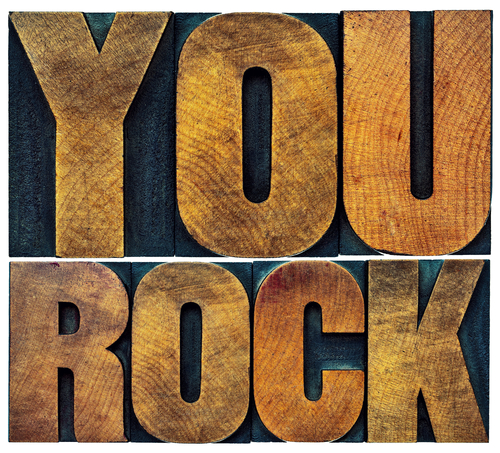
But often, there’s a rub. Social media influencers don’t necessarily want to be viewed as network marketers or distributors. Sure, hybrid individuals exist and sometimes get involved in business-building opportunities, but most simply want to remain influencers. As Call said, they are happy to “plug in” and use their influence. They may love a company’s products, but also want to simultaneously promote another company’s products.
Expectations like these are shifting incentives and recognition strategies within the direct selling industry. Multi-level compensation plans—attractive to business builders—don’t fit the social media influencer, who may prefer a single-level, built-in monetary reward for sales they influence. Company swag, free products or exclusive offers for their peer or influence group can also work.
“You have to understand who’s building it as a business and who’s merely a great promoter of your products. I think today’s companies need both. I think you still need the builders. I think you still need to have a strategy to go after the influencers. But the influencers aren’t necessarily looking for the opportunity to come to your event and walk across your stage, hold a title and a rank with the company,” Call said.
Getting Personal
The industry norm—a tiered, business-builder inspired incentive and recognition strategy—is evolving and getting increasingly complex with the introduction of these new players. But running parallel and growing more powerful in the post-pandemic era is the notion that the reward itself needs to really mean something to the recipient.
“The future of incentives for any consumer brand is how to get more personal with the behavior you’re trying to drive. Why would they care about doing this or care about the reward itself?” explained Kevin Yip, President and Co-Founder of Blueboard, a San Francisco-based experiential rewards and incentive platform.
Nearly ten years ago, Yip was an accountant at a Fortune 500 firm. He’d just wrapped a two-month-long project requiring 400+ hours of unpaid overtime. Grueling—and it took its toll: 20 pounds overweight, stressed and anxious, Yip was labeled a “top performer.” That’s when a well-meaning manager dropped a $200 gift card on his desk, and Yip’s world changed. It was easy math. His reward: roughly 50 cents per hour.
“You know when you put that much energy into something and you’re that burned out, it was the straw that broke the camel’s back. I felt it was incredibly impersonal. It felt like a slap in the face. I felt really undervalued. I was really frustrated,” Yip remembered.
That company spends millions of dollars annually on recognitions, but in the moment, Yip said, “All that hard work and good intention fell flat in that final mile.”
What if, instead, that manager offered up a short-term membership to the gym around the corner? Yip loved boxing and would relish getting back in shape. Perhaps a classy, Michelin-star dinner date since he’d been unable to spend quality time with his girlfriend as the hours piled on?
“Same cost—but imagine how much more personal and thoughtful that would’ve been for me as an employee,” Yip said.
Together, Yip and his longtime friend and fellow “top performer” Taylor Smith recalled the countless Starbucks and AmEx gift cards tossed on their desks as rewards. Were they a magical motivating factor? Not in the least. So, they set about helping companies figure out a better way and co-founded Blueboard in 2014.
Blueboard’s client base runs the gamut from direct selling organizations to some of the world’s largest tech companies, elevator manufacturers, The Shake Shack and Chick-fil-A. After a company does the introspective work necessary to identify the behaviors they want to incentivize and recognize, Blueboard shows up with a portfolio of experiences aimed at personally rewarding recipients. Then they partner with the client to launch a campaign that drives the desired outcome.
Often, they work to elevate sales and reward top performers. But campaigns can be behavioral driven too—incentivizing people to adopt a new way of doing something. For instance, one organization discovered through a deep data dive that they won 50 percent of face-to-face customer meetings, but only 10 percent when no one showed up in person. “So, we incentivized them getting an in-person meeting because that tilts the advantage,” Yip said.
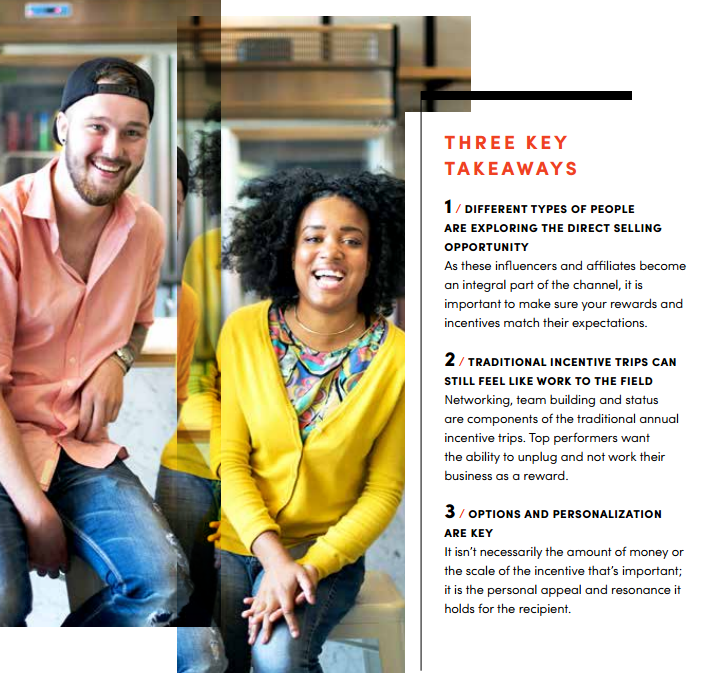
Nearly $100 billion is spent on non-cash incentives and rewards in the United States, Yip said. While there’s a travel component to that figure, much of that money goes toward gift cards, plaques, swag, electronics and merchandise. And today, a recognition strategy centered this way feels more than a little antiquated and out of touch.
“Folks aren’t going to say no to another iPad or Apple Watch, but it’s probably the fifth or sixth one they’ve received. You spend $500,000. Are they working harder because of it? Are they more loyal because of it? Are they talking about it?” Yip asked. “Probably not.”
Direct selling, as an industry, has engineered that top-rank reward—leasing an entire cruise ship or jetting people off to a private island—to a tee. But what Yip hears over and over from those ultra-top performers is that these trips still feel like work. “It’s less personally valuable. It’s more socially valuable…But it doesn’t feel like a chance to unplug,” he said.
Blueboard helps direct selling companies figure out how to reward their top people with something they want to do with their families and their friends, not a trip they take to inspire the top five people in their downline or network with other top performers. While those events are essential to business success, a real reward for top field leaders would be true downtime doing something that creates memories to last a lifetime.
That could be anything from an Italian cooking class with your team to a three-month, once-a-week Spanish language course; hiking Machu Picchu; or beach time on a white sand beach in the Bahamas with the family.
“One of the things we believe is experiences are universal, but preferences are different. So, we want to help deliver this idea of quality time to these people getting rewards,” Yip said.
Sometimes people want the ability to decide for themselves what their recognition is, Call said. And that’s why monetary rewards work.
It’s also why Blueboard’s concept is so appealing. Companies set the parameters for the reward experience and recipients get to choose. Sending someone on a trip is far different than helping them recreate their honeymoon. That’s the personal touch, and that’s something direct selling companies can deliver.
From the April 2023 issue of Direct Selling News magazine.
